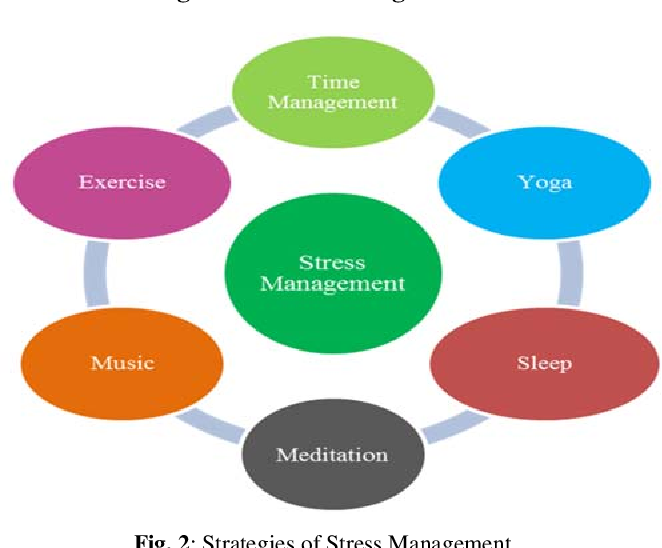Navigating the challenges of academic setbacks, I find solace in the stillness of night despite facing failures in my CL-Tymoff classes. Embracing a growth mindset and learning from setbacks, each night becomes a canvas for personal growth.
How I sleep at night knowing I’m failing all my CL – Tymoff helps to deal with tough school moments and speaks to our struggles. In those quiet nights, find comfort and learn to bounce back, even when things don’t go as planned.
Discover the journey of peaceful sleep amid academic struggles, turning failures into stepping stones for a brighter tomorrow.
Understanding The Stress Of Academic Performance – Uncover The Common Strength!
Coping with academic stress is about managing the pressure of school performance. It involves recognizing the anxiety, fear, and uncertainty related to academic expectations and finding ways to handle these challenges effectively.
Strategies include setting realistic goals, seeking support, and fostering a positive mindset to navigate academic stress successfully.
The Psychology Of Academic Stress – Unmasking The Causes!

Academic stress stems from high expectations, competitive environments, and societal standards. The fear of failure, performance anxiety, and societal pressures contribute to this psychological burden. It affects mental health, leading to anxiety, depression, and burnout.
Sleep disturbances and various symptoms impact physical health. Coping strategies include mindfulness, effective time management, seeking support, and holistic well-being practices. Understanding these factors empowers students to navigate academic challenges with a balanced approach.
Impact Of Stress On Sleep Patterns – A Brief Overview!
Stress and sleep are intertwined, creating a challenging cycle. Stress induces anxiety, racing thoughts, and the release of stress hormones like cortisol, disrupting the natural sleep-wake cycle.
This often leads to insomnia, difficulty falling asleep, and restless nights. Chronic sleep disturbances due to stress can result in physical and mental fatigue, compromising overall health.
Coping strategies include relaxation techniques, establishing a pre-sleep routine, and seeking professional support for persistent issues. Recognizing this connection is vital for implementing effective strategies to promote better sleep.
Strategies For Managing Academic Stress – Your Path To Success!
1. Effective Time Management
Importance:
Time management is essential for students facing academic stress. It helps in organizing tasks, ensuring that deadlines are met, and reducing the feeling of overwhelming workloads.
Tips:
- Prioritization: Identify tasks based on urgency and importance. Prioritize high-impact activities.
- Break Down Tasks: Large tasks can be intimidating. Breaking them down into smaller, manageable steps makes them more achievable.
- Set Realistic Goals: Establish achievable goals to prevent setting oneself up for unnecessary stress.
- Create a Schedule: Develop a daily or weekly schedule to allocate specific time blocks for various tasks, promoting a more organized approach.
Benefits:
- Efficient use of time.
- Reduced stress due to better organization.
- Improved focus and productivity.
2. Seeking Support and Counseling

Professional Guidance:
Seeking support and counseling from professionals is crucial for managing academic stress effectively. This can include guidance from academic advisors, counselors, or mental health professionals.
Strategies Provided:
- Stress Management Techniques: Professionals can offer personalized stress management techniques, helping students cope with academic pressures.
- Sleep Improvement Strategies: Counseling may include strategies to enhance sleep habits, mitigating the impact of stress on sleep.
- Coping Mechanisms: Professionals can provide coping mechanisms to deal with anxiety and other emotional challenges associated with academic stress.
Benefits:
- Enhanced emotional well-being.
- Tailored strategies for individual needs.
- A safe space for expressing concerns and seeking guidance.
3. The Importance of Self-Care
Holistic Well-being:
Recognizing the significance of self-care emphasizes that academic success shouldn’t come at the expense of overall well-being. This includes physical and mental health.
Components of Self-Care:
- Exercise: Regular physical activity contributes to both physical health and stress reduction.
- Healthy Eating: A well-balanced diet supports overall health, impacting energy levels and cognitive function.
- Relaxation Techniques: Practices like meditation, deep breathing, or hobbies provide avenues for relaxation.
Benefits:
- Improved physical health.
- Enhanced mental resilience.
- Better capacity to manage stress.
Incorporating effective time management, seeking professional support, and prioritizing self-care collectively create a robust strategy for managing academic stress. Balancing these elements contributes to a healthier and more successful academic journey.
The Science Of Sleep – Sleep Affects Learning!

Consolidating Memories:
During sleep, the brain consolidates and organizes memories acquired during the day. This process is crucial for retaining information and enhancing learning.
Enhancing Learning:
Quality sleep positively impacts cognitive functions, including attention, problem-solving, and creative thinking. It contributes to optimal learning and academic performance.
Neurological Processes:
Sleep is associated with various neurological processes that support memory formation, such as synaptic plasticity and the transfer of information from short-term to long-term memory.
1. Tips For Improving Sleep Quality:
- Consistency in bedtime and wake-up times regulates the body’s internal clock, promoting better sleep quality.
- Ensure your sleep space is comfortable, dark, and quiet. Minimize disruptions to create an environment conducive to restful sleep.
- Limit exposure to electronic devices before bedtime, as the blue light emitted can interfere with producing the sleep hormone melatonin.
Overcoming The Fear Of Failure – Changing Your Mindset!
1. Changing Your Mindset:
Shift from Fear to Learning:
Encourages individuals to change their mindset regarding failure. Instead of fearing it, the emphasis is on viewing failure as a valuable learning opportunity.
Embracing Failure:
The goal is to embrace failure as an inherent and necessary learning process. This mindset shift recognizes that setbacks contribute to personal and academic growth.
Psychological Resilience:
By changing their mindset, individuals build psychological resilience. They become more adaptable, able to face challenges with a positive outlook, and are less hindered by the fear of failure.
2. Learning from Failures:

Opportunity for Growth:
Recognizes that every failure is an opportunity for personal and intellectual growth. It reframes setbacks as stepping stones toward improvement rather than insurmountable obstacles.
Analyzing Failures:
Encourages individuals to delve into the reasons behind each failure. Understanding what went wrong provides insights into areas that need improvement and helps formulate strategies for future success.
Progression from Setbacks:
Emphasizes the importance of actively learning from failures. This involves developing strategies to overcome challenges, refining study methods, and seeking support when needed.
The Future Of Education – Embrace The Evolution And Shape Tomorrow!
The future of education embraces a holistic approach, prioritizing mental health, diverse learning styles, and personalized technology integration. It emphasizes practical skills, critical thinking, and adaptability to real-world challenges.
Collaborative learning spaces, community engagement, and global perspectives redefine the educational experience. A commitment to lifelong learning ensures students thrive in an ever-evolving world.
Frequently Asked Question
1. How Can I Improve My Sleep While Dealing with Academic Stress?
Establish a calming pre-sleep routine, prioritize 7-8 hours of sleep, and avoid caffeine before bedtime. Incorporate relaxation techniques like deep breathing for better sleep quality.
2. What Are Effective Time Management Strategies for Students Facing Academic Stress?
Organize tasks, prioritize deadlines, and break down larger tasks. Eliminate distractions during study hours, collaborate with peers, and take reflective breaks for enhanced productivity.
3. How Can I Change My Mindset About Failure and Success in Academics?
Shift from fearing failure to viewing it as a learning opportunity. Embrace setbacks, celebrate small victories, and seek inspiration from others who have overcome academic challenges.
4. What Role Do Educators and Parents Play in Managing Academic Stress?
Educators offer resources and encouragement, crucial in identifying and supporting stressed students. Positive parental attitudes and open communication create a supportive environment for effective stress management.
Conclusion:
Overcoming the stress of academic challenges requires a holistic approach. Prioritize sleep, manage time effectively, and shift your mindset towards viewing failure as an opportunity for growth.
With support from educators and parents, fostering a resilient mindset becomes key to finding peace amid academic struggles.
Read Also:













+ There are no comments
Add yours